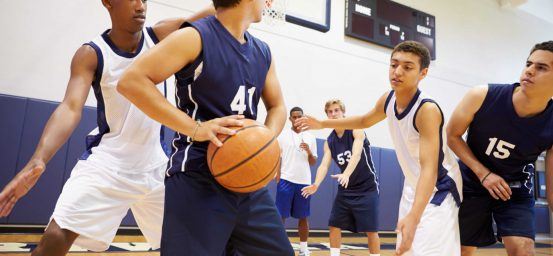A concussion is a brain injury that affects your brain function. The leading causes of concussion include motor vehicle crashes, falls, being struck on the head, and sports-related injuries. A common misconception is that a concussion comes from a blow to the head, but in some cases, they are caused by whiplash or by violently shaking the head.
At CentraState, our Neuro-Rehab Concussion Program offers a comprehensive approach to managing every aspect of concussion and brain injury, from assessment to treatment. A multidisciplinary team of adult and pediatric providers who specialize in sports medicine, rehabilitation, neurosurgery, and neurology are available to assist in managing various levels of concussion. Speech/cognitive therapy, physical/vestibular therapy, occupational therapy, and employment/educational support services are available as part of a personalized treatment plan.
CONCUSSION SYMPTOMS
A concussion can have a range of symptoms, including:
- Not thinking clearly
- Feeling slowed down or tired
- Having no energy
- Being unable to concentrate or remember new information
- Nausea and vomiting
- Headache
- Fuzzy or blurry vision
- Dizziness
- Sensitivity to light or noise
- Balance problems
- Being easily upset or angered
- Feeling sad, nervous, anxious, or overly emotional
- Sleeping more or less than usual
- Having a hard time falling asleep
CONCUSSION TREATMENTS
It’s important to seek immediate evaluation and treatment for a concussion. Complications from a concussion can include problems like epilepsy, post-concussion syndrome, post-traumatic headaches, post-traumatic vertigo, and second impact syndrome.
At CentraState, our concussion experts:
- Use evidenced-based therapies to assess, manage, and rehabilitate concussions in people of all ages
- Conduct baseline and post-injury neurocognitive concussion testing using the ImPACTTM tool, CNS VitalSignsTM, and other neurological tests
- Develop concussion rehabilitation programs that are individually tailored for people of all ages to facilitate a safe return to activities
- Develop concussion management treatments and return-to-play guidelines
Proper management is key to safely return to sports, school, work and other activities. Rest or quiet brain activity is critical to allow the brain to recover. This includes refraining from sports, vigorous activities, and even watching TV, playing video games, doing schoolwork, or using a computer.



